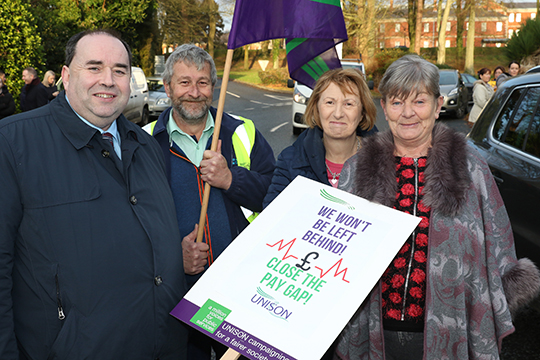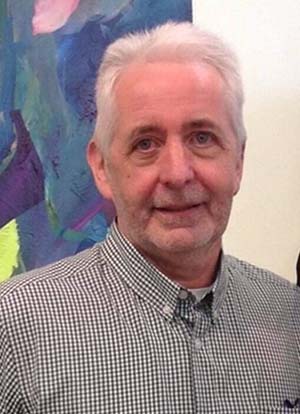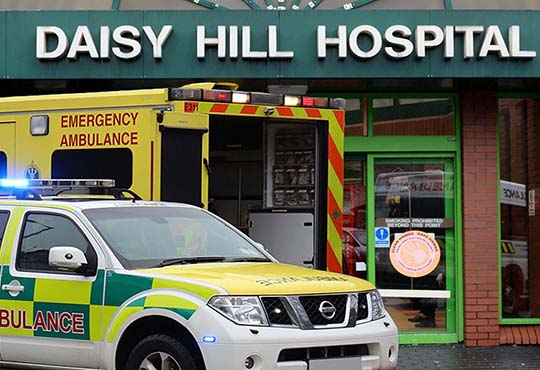The Down Community Health Committee is seeking reassurance that the A&Es in Northern Ireland won’t be cut without a proper public consultation.
The Down Community Health Committee (DCHC) has called upon the Department of Health to give a categorical assurance that no changes to Emergency Care in Northern Ireland hospitals will be implemented until there has been full and meaningful consultation with local communities affected by the proposals. These are communities who, ultimately, own and fund the National Health Service they argue.

Commenting on suggestions that the next few weeks will see the announcement of the outcome of the review into Emergency Care and that, central to that will be proposals for “telephone first” care, the DCHC urged caution and consultation.
DCHC Health Committee spokesperson Ann Trainor highlighted the decision just two weeks ago of NHS England, to abolish the system, less than three years old, of “total triage” for GP appointments, in favour of new guidance requiring “a clear offer of appointments in person”, respecting the preferences of individual patients.
Mrs Trainor pointed out that whilst the decision by NHS England related to GP services, it was a further step towards full recognition in England of the importance of a flexible approach decided upon, not just by clinicians and bureaucrats, but also by patients.

She added: “Any change to Urgent Care must be seen also in the context of an opportunity to end the discrimination against rural communities in service provision and the health inequalities that inevitably arise from there.”
Aidan Harris, veteran health activist and campaigner, highlighted the importance of the Department of Health and the Ambulance Trust addressing the deficiencies of service to the East Down community.
He said: “The Ambulance Service has done a great job with exceptionally limited resources before and during the pandemic and everyone knows that it needs substantial investment to transform it.
“Until that transformation is complete, there should be no consideration of changes to Emergency Care, other than to restore the pre-Covid service at hospitals such as the Downe,” he added.
And Health Committee chairperson Eamonn McGrady called upon the South Eastern Health and Social Care Trust to provide full details of the implications for patients and staff of proposed “administrative” changes announced in the last two weeks, which have caused significant concern to staff in the Downe Hospital.
Mr McGrady said: “It would be helpful if the Trust could answer some specific questions. Firstly, what is the purpose of the proposed changes and what will the consequences of those changes be?
“Secondly, what will the implications be for the local residents who currently enjoy treatment at the Downe Hospital?
Thirdly, we understand that the Trust is indicating that it intends that more acute care will be provided in the Downe. How will that be done? How many more beds will be opened at the Downe, which is often under bed pressure? Are there plans to extend the Downe Hospital? Where will any additional patients otherwise have been treated? And what steps have been taken to address the concerns of the staff in the Downe Hospital ?”
With just about a year to the next NI Assembly election, health could certainly be a political hot potato for all the parties to juggle with as they are increasingly subject to scrutiny by the electorate.


























